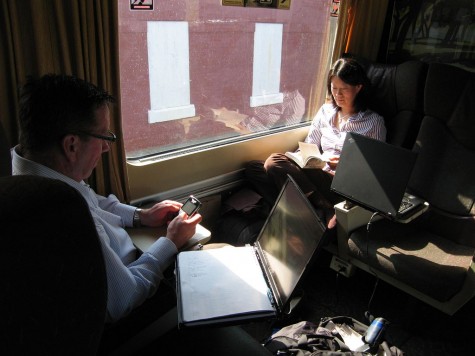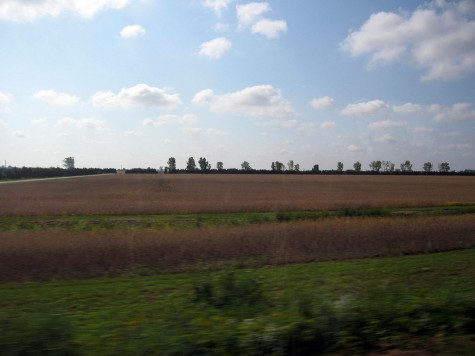With a schedule to pick up the train from Oshawa through Toronto to Windsor, Stephen got caught in a traffic at the shift change at the General Motors plant. Having missed the Via Rail train, he was told that he could catch the later GO Train from Oshawa to Windsor, and arrive at Union Station before the train left. The voyage outbound from Toronto was considerably less stressful.
I prefer travelling by train over flying. The stress is lower. It’s too bad rail travel isn’t a practical alternative to most destinations.
The rail route through southern Ontario sees a lot of farm land.
Highway 401 is normally considered the direct freeway from Toronto to Windsor. The original Highway 2 ran through small towns north of Highway 401. Approaching Windsor, Highway 2 lost its official designation in 1998. Continue reading “2008/09/22 Toronto-Windsor on a day trip“






